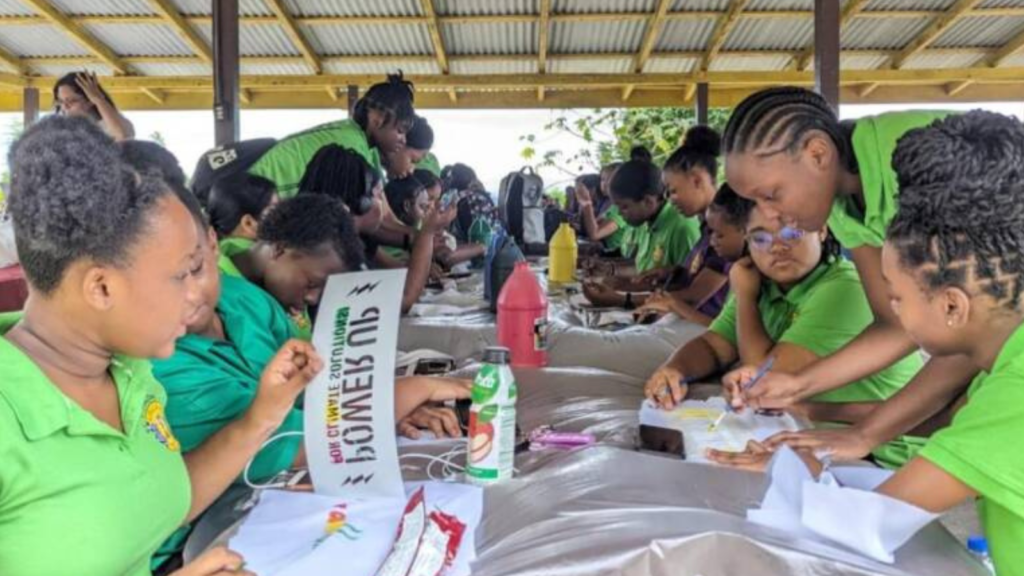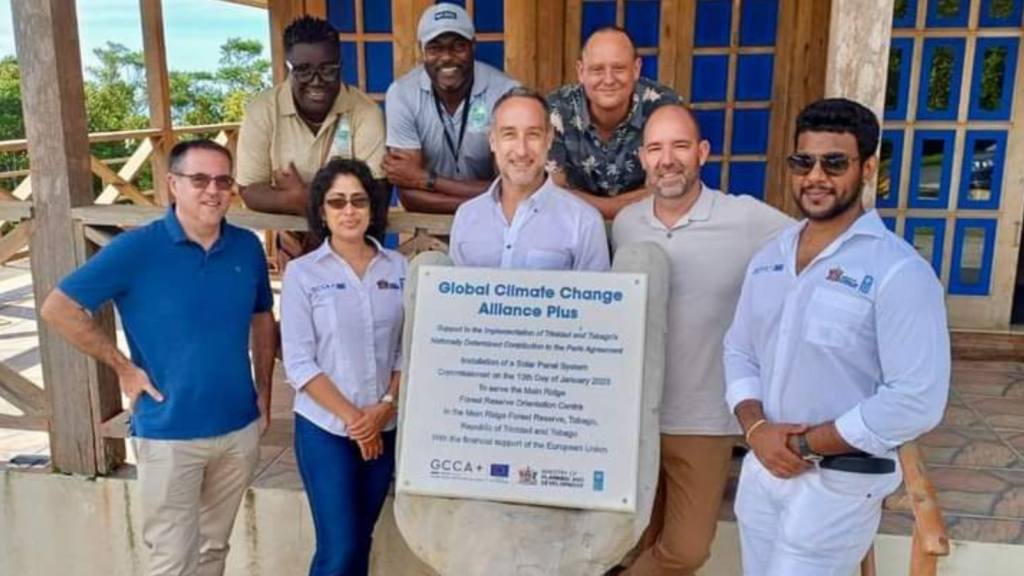When it comes to a just energy transition, communities are key stakeholders. Communities must be considered to understand the potential impact of an energy shift. Further considerations can be made on factoring a just and equitable energy distribution system through understanding their needs and utilization of existing energy systems. In Trinidad and Tobago, this is becoming of greater focus, with organizations prioritizing communities’ awareness of an energy shift as a critical part of the transition process.
As a country with an energy sector centred on oil and gas, Trinidad and Tobago has maintained a strong history with the extraction and use of fossil fuels. Dated as far back as the 1850s, oil drilling and exploration have been prominent features of the country’s petroleum industry. With a shift in the early 1990s, a once oil-dominant industry shifted to a mostly natural gas-based sector, with an electricity sector fueled entirely by natural gas. Despite the long-standing reliance on this source of energy, the impacts on climate, environment, and communities lead to urgent demands for an energy shift.
With communities in mind, their awareness and preparedness ensure that an energy shift is equitable and considers each person’s needs. Efforts to increase communities’ awareness have led to varying observations on the barriers, challenges, and steps to move forward by organizations in Trinidad and Tobago.
Katrina Khan-Roberts, co-national coordinator of Trinidad and Tobago Climate Network, shared that social norms strongly impact the barriers and challenges on communities’ awareness and preparedness. She explained that social norms can influence people’s interest or lack thereof in energy alternatives, with affordability and security being key factors in what goes into greater demand. She added that aside from social norms, literacy in adopting renewable energy sources is another challenge, where people must be open to change and exposure to literacy in this form of energy as a viable option.
Dr. Curtis Boodoo, a Sustainable Energy Expert with experience at the United Nations Development Program (UNDP), shared a different perspective on potential barriers and challenges. Based on his experience with community education on renewable energy projects, he said that only some major factors inhibit one from accessing the necessary information. He shared that many sources are available to be informed, ranging from social media to radio stations.

One point that’s agreed upon by both is that it depends on the person’s interests and how that aligns with the future of an energy transition. If communities believe that it’s more feasible to remain with the existing energy industry, they will be less inclined to learn about sustainable alternatives. Despite this reality, community engagement can be a glimmer of hope to introduce communities to renewable energy sources and equipment.
Organizations such as The Trinidad and Tobago Climate Network and UNDP are continually working to incorporate community preparedness as part of the energy transition process.
The Trinidad and Tobago Climate Network has engaged in community engagement with a focus on a just energy transition. Their “Power Up” project in 2023 was a collaboration with 350.org and the Caribbean Climate Network, featuring a collection of artists and writers. Persons submitted their pieces to build an anthology called “Perspectives on the Just Transition of Trinidad and Tobago” as part of the campaign.
In 2023 the UNDP launched their Global Climate Change Alliance Plus (GCCA+) project to introduce renewable energy as an energy source for electricity generation in communities. This project features the installation of twelve (12) small-scale roof-mounted solar PV systems at sites such as the Red Cross Society, Strong Ones Youth Club, Nature Seekers Visitor Center, and Speyside Secondary School. In October 2024, they launched a public awareness-raising campaign on energy efficiency with renewable energy systems. Dr. Boodoo reflected on his experiences during this campaign, stating that community members received training, education, and support in learning about the newly installed solar energy systems and a general knowledge of renewable energy.

Whilst organizations continue to push toward increasing awareness, there are recommendations to further ensure that communities remain of priority during this shift. Khan-Roberts shared on the matter that culture change can only occur with tried and proven pilot projects. She explained, “Legislation is the foundation of all social change, implementation is the greatest challenge and the most frustrating thing is the political will, especially when the economy benefits from the current situation of a gas-driven grid as it is perceived as cheaper to produce energy this way.”
A recommendation shared by Khan-Roberts is the drafting of legislation where the systems for production, procurement, installation, maintenance, and disposal are outlined according to the local context. This must be followed by public adoption of this new outlook on energy, with the retraining of staff and retooling systems to fit this new source of energy. She added that the public and private sectors must be on board to support the spread of this technology and bring solutions, services, and products to the people. Incorporating communities’ awareness in some ways can be seen as a prolonged process. Whilst Khan-Roberts urges for phases beyond community education, Boodoo shared his belief that communities are past the stage of public awareness and community engagement. The stage identified by Boodoo that communities are at now, is focused on the installation of systems in communities, where persons can acquire first-hand experience and engagement.
Incorporating communities’ awareness of renewable energy systems is a process of continued training, support, and engagement. As more communities are introduced to renewable energy systems in their areas, there remains a need to ensure that they are well-informed about the new systems in place and how they can be tailored to suit their needs. Whilst there are steps beyond community awareness that are yet to be fully in action, the initial stages of engagement can develop the framework of ensuring an energy transition remains equitable and accessible for communities.
—
This story was originally published by the Caribbean Climate Network, with the support of Climate Tracker’s Caribbean Energy Transition Media Mentorship.